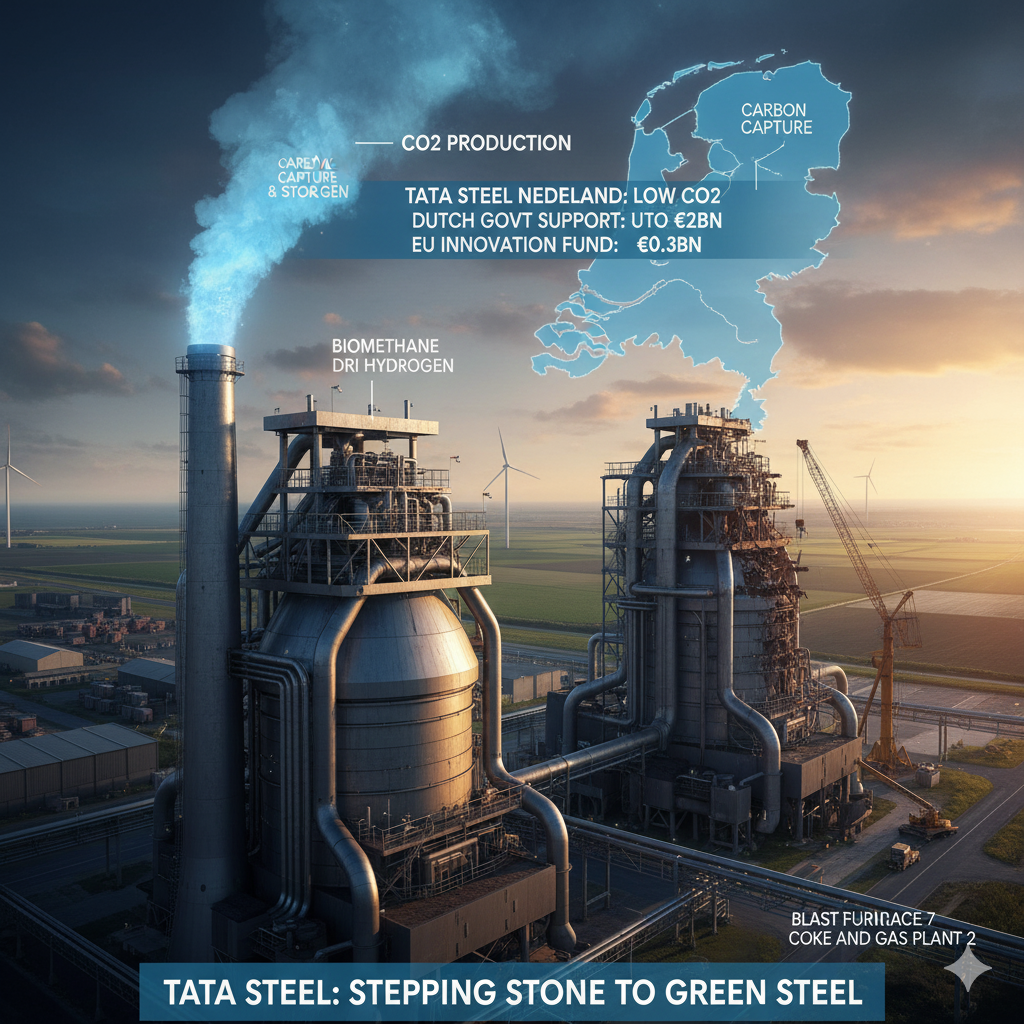Dutch project: Low CO2 steel production
The Dutch government would support it with up to €2 billion under the JLoI. TSN has also applied for the EU Innovation Fund for €0.3 billion. The remaining amount would be funded by a combination of the cash generated and contributed by TSN.
The Government of the Netherlands and the province of North-Holland, Tata Steel and Tata Steel Nederland (TSN) have agreed on an intended framework for the integrated project in TSN and signed a non-binding Joint Letter of Intent (JLoI) for the first phase of transition to low CO2 steel production and to improve the healthy living environment around the IJmuiden site. Both parties will continue working towards the final tailor-made agreement in the coming months, including after the elections and the formation of the new government in the Netherlands.
“There are many issues to resolve and tasks to accomplish before us. It includes internal work such as completing the engineering preparedness for this complex transition and addressing statutory and regulatory aspects related to the coke and gas plants,” T V Narendran, CEO & Managing Director, Tata Steel and Chairman of the Supervisory Board of Tata Steel Nederland, says. It also involves external issues, including resolving critical policy matters that impact the investment case, obtaining permits for the projects, and finalising detailed terms in the binding agreement before proceeding with the investment decision, he adds.
The goal is to restore it to one of the most competitive steel-making sites in Europe. In the initial phase of the Integrated Health Measures and Decarbonisation Project, TSN plans to decommission the existing Blast Furnace 7 and Coke and Gas Plant 2. They will also construct a Direct Reduced Iron Plant (DRP) that will initially operate on natural gas, along with an Electric Arc Furnace (EAF) designed to accommodate a higher intake of scrap metal. Subsequently, Carbon Capture and Storage will be added to the DRP to further reduce TSN’s annual scope 1 CO2 emissions by 0.6 Mta. Finally, biomethane and/or hydrogen will be used when economically available at scale, to further reduce TSN’s annual scope 1 CO2 emissions by 1.2 Mta on a phased basis.
TSN has not yet completed the full engineering of the integrated project and therefore has not finalised the total spend. The Dutch government would support it with up to €2 billion under the JLoI. TSN has also applied for the EU Innovation Fund for €0.3 billion. The remaining amount would be funded by a combination of the cash generated and contributed by TSN, project financing debt, and funding procured by Tata Steel during the project spend period.

